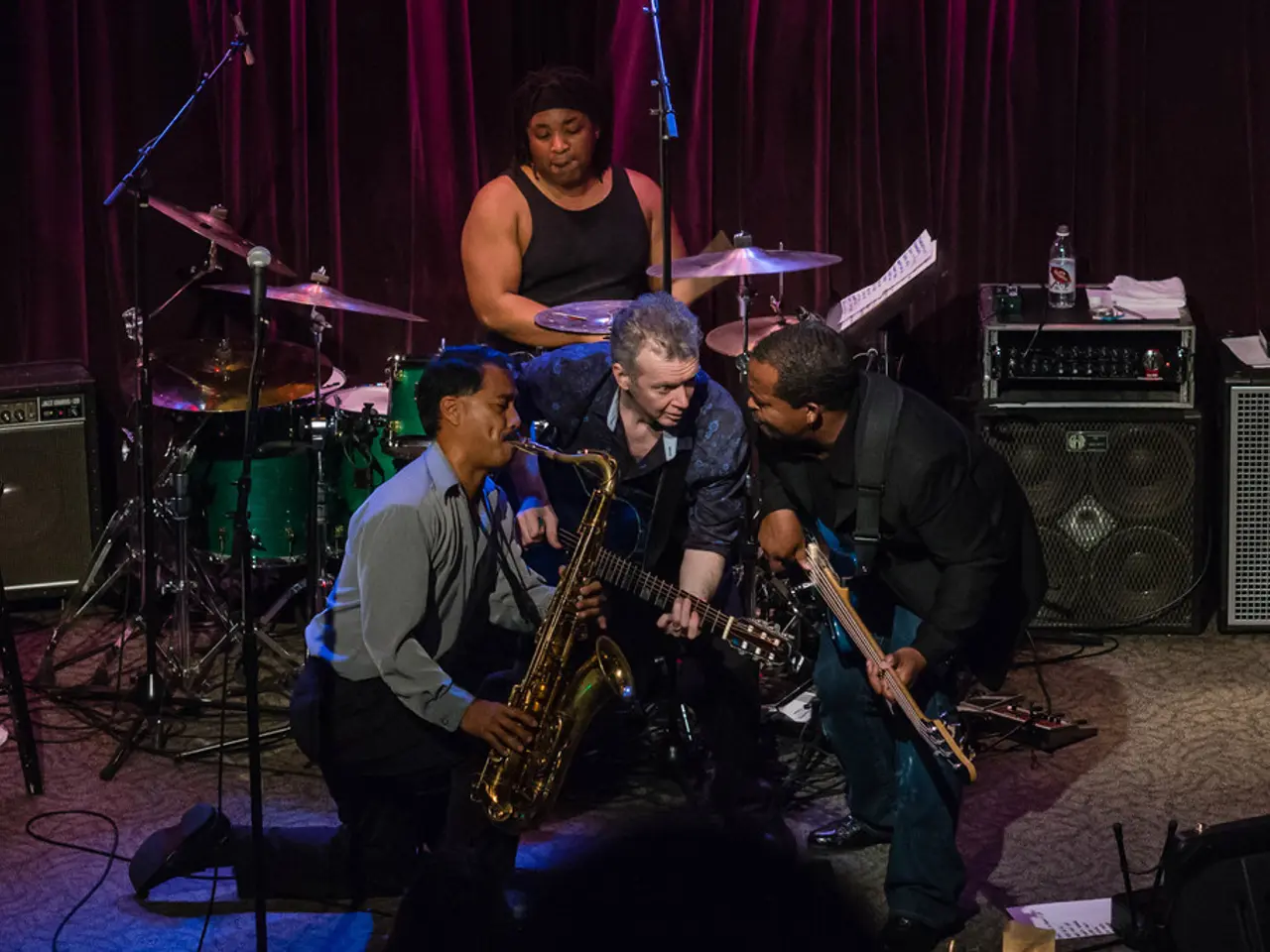Audio Interface 2025 Holds at Our School: Shaping the Next Generation of Sound Coding
AI and Music: The Future of Sound at the Audio Programmer Interface (API) Event
The Music School, a renowned institution offering degrees and short courses in London, LA, Ibiza, and online, recently hosted the Audio Programmer Interface (API) event. The event brought together industry professionals, students, and enthusiasts to explore the latest trends and tools at the intersection of music production, coding, and AI.
Reuben Thomas from JUCE kicked off the event by discussing MIDI 2.0, the latest evolution of the technology behind how electronic instruments and software communicate. This upgrade allows for higher-quality messages and better interaction between devices, giving musicians and developers more detailed control and expression in their music-making.
Christopher Micheltree, the programme leader for the BSc (Hons) Music Production & Software Engineering degree, presented a talk titled "A RADical Approach." He introduced two tools: 'Manhattan', a hybrid digital audio workstation (DAW), and 'Klang', a simplified C++ coding language for audio. These tools are designed to empower creators by bridging the gap between musical innovation and real-world coding.
The BSc (Hons) Music Production & Software Engineering degree at the school fuses musical innovation with real-world coding, developing tech-savvy creatives ready for software engineering. The course modules, such as Computational Thinking, use code to arrange and compose music.
The event highlighted the role of AI in music production, with demonstrations from Suno AI, Udio, and LANDR. Suno AI and Udio showed the ability to generate multi-genre music and lyrics from text descriptions, while LANDR showcased AI-driven mastering services that streamline post-production.
Generative AI systems such as MusicLM and MusicGen, trained on audio waveforms and annotations, can produce realistic new samples or melodies on demand, enabling a hybrid coding-music approach for sound designers. AI also assists in breaking creative blocks by generating chord progressions, melody lines, and drum patterns algorithmically, saving time in composition and arrangement stages.
However, the use of AI in music raises ongoing debates about copyright and royalties, especially with AI audio deepfakes and cloned vocals. Professional musicians are using AI as a creative partner rather than a replacement, curating their own AI training datasets to preserve unique styles and legal rights. Some artists have even released AI models of their voices for collaborative remixing, blending human creativity with generative AI capabilities.
The event also highlighted emerging coding tools and open frameworks enabling producers and programmers to integrate AI-assisted features into digital audio workstations (DAWs). Integration challenges include maintaining real-time collaboration capabilities and ensuring AI tools are intuitive enough for DIY musicians while powerful for professionals.
The evening concluded with a panel discussion on "What's Next in Music Tech?" featuring experts from Orange Amps, Spitfire Audio, and Plugin Alliance. The school also offers free courses, exclusive music-making tools, tutorials, and other resources through its Free Stuff page. The school has earned a prestigious Gold rating in the Teaching Excellence Framework (TEF).
In summary, the API event overviewed how AI-enabled generative tools (e.g., Suno AI, MusicGen), mastering platforms (LANDR), and coding frameworks are reshaping music production by automating routine tasks, aiding creativity with algorithmic composition, and fostering collaboration through AI models—all while respecting artistic intent and copyright boundaries.
- The BSc (Hons) Music Production & Software Engineering degree at The Music School, with its emphasis on education-and-self-development, is preparing students to leverage technology in lifestyle areas like music production, merging musical innovation with coding skills.
- As technology advances in the entertainment domain, AI-driven tools like Suno AI, MusicLM, and MusicGen are not only revolutionizing music creation by generating multi-genre music and lyrics, but also bridging the gap between lifestyle pursuits such as music and coding, offering a hybrid approach for sound designers.




